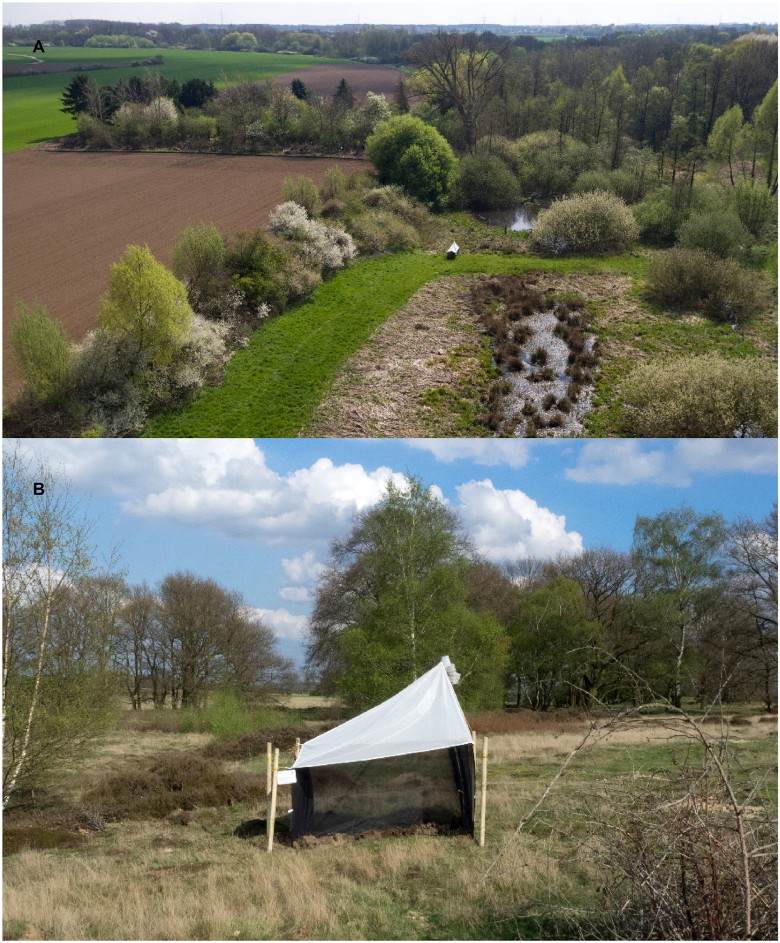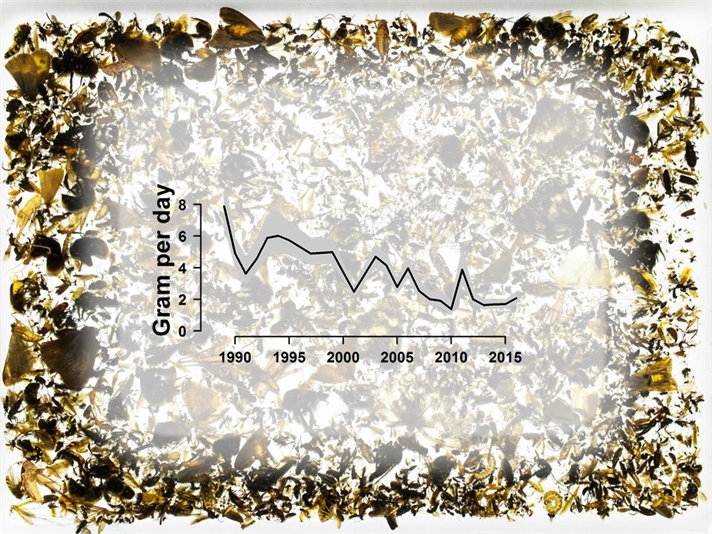Over the past 27 years, the biomass of flying insects in Germany has decreased by 76%

Insects are an important link in the nutrient cycle of the terrestrial ecosystem. They make up about two thirds of all living biomass on Earth, although 20% of biomass is accounted for by ants and termites.
Something strange is happening in the ecosystem of Europe. Entomologists from the German Krefeld summed up the 27-year experiment to measure the number of flying insects and stated that they continue to die out for an unknown reason.
It may seem to an ignorant person that on Earth it will only get better without mosquitoes, flies and other bugs. But not everything is so simple. It is known that insects play an important role in the ecosystem, including in pollination processes and as a link in the nutrient cycling. It is an essential food source for birds, mammals and amphibians. Given this, scientists consider the preservation of a large number of insects and the diversity of their species as a top priority in current conditions, where they are clearly in danger.
Now it is difficult to predict what consequences for the ecosystem will reduce the number of insects, but nothing good can be expected. Experts say that the world is on its way to “ecological Armageddon”, which will greatly affect human civilization.
From 1989 to 2016, entomologists collected material from the trap of Malese, placed in 63 natural reservations in Germany. The collected data and depressing statistics refer not only to Germany, but also to all other territories, where a person has developed extensive agricultural activities, changing the living conditions for all the flora and fauna around.

Insects caught in the trap of Malese during the experiment
Tellingly, all the traps (as in the photo below) were set up in protected natural areas and reserves, where certain efforts are made to preserve natural diversity. The catastrophic reduction of insects, even in these areas - near forests and water bodies - is of particular concern to scientists.

Malaise's trap
The Malaise Trap is a simple device that entomologists use to catch insects. It is set for a certain period of time, and then the biomass of insects that are trapped is measured. The diagram shows how the average biomass changed in the trap from 1989 to 2016.

“The fact that the number of flying insects is declining at such a high rate on such a large area is an alarming discovery,” says Hans de Kroon of the University of Nijmegen, lead author of the scientific work.
Professor Dave Gulson of the University of Sussex, another author of the scientific article, agrees with his colleague: “Insects make up about two-thirds of all life on Earth, and here we see some kind of catastrophic decrease. It seems that we are making huge tracts of land unsuitable for most life forms and are currently on our way to ecological Armageddon. If we lose insects, everything will collapse. ”
The findings of German scientists are confirmed by previous studies, which showed a 50% reduction in insect biomass from 1990 to 2011, as well as the well-studied problem of reducing the population of bees and butterflies. Now it turns out that the problem affects not only the most vulnerable species, but all flying insects in principle.
The exact causes of the disappearance of flying insects are not well understood. Scientists are pushing for different versions, including climate change, habitat loss, fragmentation and degradation of habitats.
In the last study, scientists tried to find correlations between the fluctuations of the biomass of flying insects and other factors - weather, habitats and the level of development of the area around the trap. The material was collected every year from March to October by the standard method.
It turned out that over the past 26 years, the seasonal reduction in biomass was 76%, and in the hottest period in the middle of summer, the reduction is 82% (in this period, the number of insects reaches a peak). Scientists could not find a correlation between the degree of extinction of insects and weather, the type of habitat and the level of development of the area around the trap.
In September, the chief scientific adviser to the UK government expressed the view that regulators around the world are mistaken, suggesting the safety of using pesticides on an industrial scale, and the consequences of this practice are largely ignored. His article was published in the journal Science (doi: 10.1126 / science.aan2683).
The scientific article of German entomologists was published on October 18, 2017 in the journal PLOS ONE (doi: 10.1371 / journal.pone.0185809).
All Articles